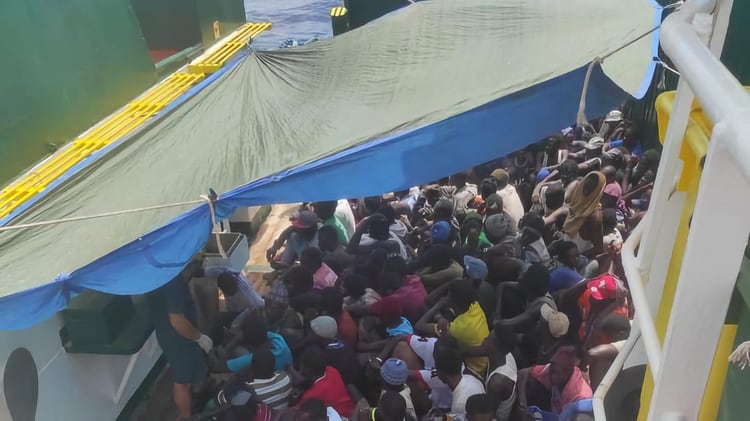The Diplomat
The Spanish Commission for Refugee Aid (CEAR) and Caminando Fronteras called for a halt to the transfer of 168 migrants to Senegal by a Guardia Civil patrol boat and for them to be guaranteed access to the process of applying for international protection.
The 168 migrants were taken throughout Monday and Tuesday by the patrol boat “Rio Tajo” to Senegal, after having been rescued from the sea and having remained for four days off the coast of Nouadhibou and after Mauritania refused to take charge of them.
CEAR demanded that the European Convention on Human Rights be guaranteed before transferring them and returning them to Senegal “so as not to incur in a possible violation of international law, as it could be considered a possible collective refoulement”.
CEAR recalled that the European Court of Human Rights (ECHR) rules that these persons have the right to be informed by trained personnel with the support of interpreters and legal advisors, and put emphasis on ensuring that persons are not returned to countries where their rights and lives may be at risk, underlining the importance of access to individualised procedures.
CEAR indicated that among those rescued there could be people in need of international protection and asked the Guardia Civil to take this into account when it comes to informing them properly, registering their application if necessary and transferring them to Spain so that they can formalise their request to the competent authorities.
The organisation warned that at the moment in Senegal “the rights of a large part of the population are not guaranteed” due to the growing instability in the country, and affirmed that what has happened is “a new example of the risk that agreements conditional on migratory control or the externalisation of borders pose for development cooperation and rights”.
For her part, the founder of Caminando Fronteras and human rights activist, Helena Maleno, asked in statements to Europa Press: “Who is going to guarantee, when these people return to Senegal, their protection and who guarantees that the right to asylum will be respected and that they will not suffer inhumane and degrading treatment when they are returned?”.
The Ministry of the Interior responded to these demands by calling for “rigour and seriousness”, and asking that “irresponsible messages that could endanger the lives of those rescued” not be launched.
Meanwhile, the professional association of the Guardia Civil JUCIL demanded an investigation in the parliamentary commissions of Interior and Foreign Affairs in Congress into Mauritania’s refusal to accept the Armed Forces patrol boat with the 168 migrants on board.
JUCIL describes what happened on board the “Río Tajo” as a “migratory disaster” and criticised the “scant involvement observed in the Spanish political groups to find a solution to the problem that has arisen.
“In addition to the mutiny, controlled by the comrades through the use of shots fired into the air from long guns, we are concerned about the health and hygiene situation of these workers, who are also Spanish workers, although no ministry, not even the Ministry of Labour, seems to be interested in their situation”, said JUCIL’s Communication Secretary, Agustín Leal.







